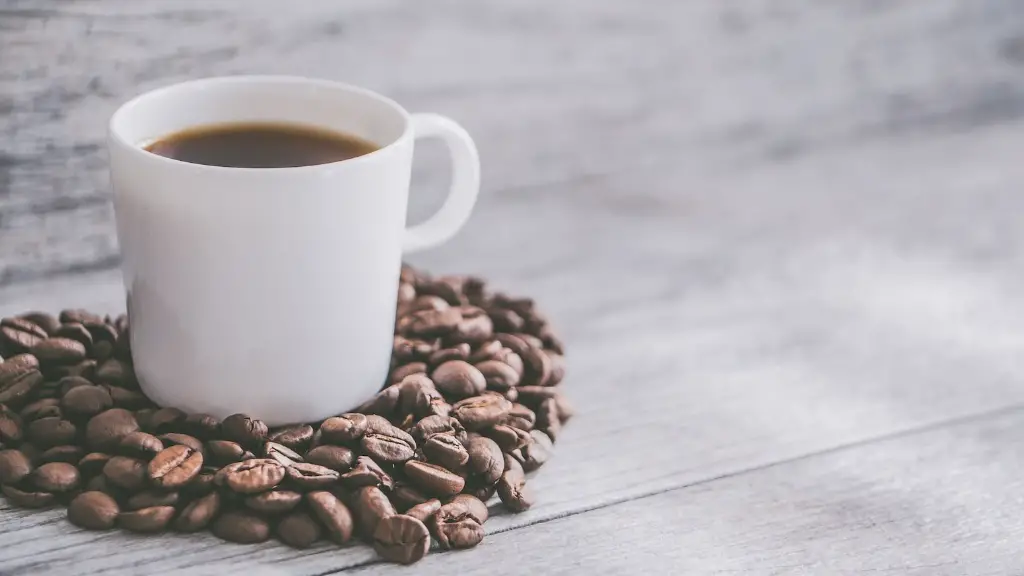Drinking coffee is a favorite pastime for many due to its energizing effects on the body. However, when it comes to stomach ulcers, can you still enjoy your morning cup of joe?
Stomach ulcers, or peptic ulcers, are sores on the lining of the stomach, a part of the digestive tract. They are caused by either a bacterium called Helicobacter pylori or the long-term use of medications such as nonsteroidal anti-inflammatory drugs (NSAIDs). Not surprisingly, stomach ulcers can cause excruciating abdominal pain and can be accompanied by other symptoms such as nausea, indigestion, bloating, and heartburn.
Drinking coffee while having a stomach ulcer may make the symptoms worse as caffeine can increase stomach acid production and irritate the already sensitive lining of the stomach. This can lead to increased abdominal pain, nausea, vomiting, and overall discomfort. It can also aggravate symptoms of an existing ulcer, such as burning sensations or acid reflux.
Coffee is very acidic and contains compounds such as tannins that can irritate an existing stomach ulcer and make it worse. In addition, caffeine can cause the muscles in your stomach to relax, which can impede the healing process of the ulcer. This could make the symptoms more severe over time.
It’s important to note that not everyone reacts the same to coffee when they have a stomach ulcer. Some people may find that they can drink coffee without experiencing any ill effects, while others may find that even the smallest amount of coffee causes them pain.
Experts recommend that people with a stomach ulcer limit or avoid caffeine-containing beverages such as coffee, tea, and soda. Decaffeinated coffee may be an option for those who want to still indulge in the drink by avoiding the caffeine but this isn’t always a viable option as decaf still contains some caffeine, and may still cause irritation.
Herbal teas that don’t contain caffeine may be a better option for those with stomach ulcers. Herbal teas such as ginger, peppermint, chamomile, licorice, and marshmallow are known to have anti-inflammatory properties that may help reduce the pain and discomfort associated with the ulcer. Additionally, warm water may be beneficial as it can soothe the stomach and aid in digestion.
Managing diet
In addition to avoiding or limiting coffee intake, people with stomach ulcers should pay attention to their diet for faster healing. Fatty, highly processed foods, and spicy compounds should be avoided as they can aggravate the condition due to their irritant properties. Diet should instead be dominated by lean proteins, fresh produce, nuts and seeds, and whole grains.
Studies have shown that certain foods can help heal ulcers, such as yogurt, garlic, and turmeric. Yogurt contains probiotics which are known to reduce inflammation, while garlic is rich in antioxidants that can facilitate the healing process. Similarly, turmeric contains curcumin, a compound with anti-inflammatory and antioxidant properties that aid in the healing of ulcers.
Lastly, though it may be hard to do for those who love their morning cup of coffee, those who suffer from stomach ulcers must stay away from alcohol, as this can only make the condition worse. Alcohol consumption can increase stomach acid and thus hinder the healing process.
Taking medication
It is also important to take the medications prescribed by one’s doctor as this will accelerate the healing process. Certain drugs such as histamine receptor antagonists, proton pump inhibitors, and antibiotics can help treat an existing ulcer and reduce symptoms.
It is important to note that medications will work best when taken alongside dietary changes, as some foods can help the medication be more effective, while others can reduce its effectiveness.
Taking vitamin supplements can also be helpful in the healing process. Certain vitamins, such as vitamin C and vitamin E, are known to help reduce inflammation and aid in the healing of ulcers.
When to visit the doctor
If one’s symptoms are not improving even after making dietary changes and drinking caffeine in moderation, it’s best to visit a doctor. This is especially important if the person is also experiencing other symptoms such as fever, weight loss, or vomiting blood.
To diagnose a stomach ulcer, doctors typically perform a physical examination, a blood test, and an endoscopy to check for the presence of ulcers. This can also be used to determine the severity of the ulcer and the cause.
Once the doctor has confirmed a stomach ulcer, he or she may also recommend lifestyle changes as well as treatments that will speed up the healing process. The doctor may also recommend certain medications that can reduce pain and help the ulcer heal more quickly.
Prevention
The best way to prevent stomach ulcers is to avoid certain medications, lifestyle choices, and foods that can increase the risk of developing one. Avoiding NSAIDs, smoking, drinking alcohol, and reducing stress can lower the risk of ulcers.
Additionally, reducing the amount of spicy and processed foods can also be beneficial. Eating a balanced diet that consists of healthy proteins, fresh produce, and whole grains will also help to reduce risk.
Stomach ulcers can be painful and uncomfortable, and it is important to take steps to ensure that one is avoiding things that can aggravate or worsen the condition. Caffeine-containing beverages such as coffee should be avoided or limited, and instead replaced by healthier alternatives such as herbal teas. Taking medications and making dietary changes can also help the ulcer heal.




